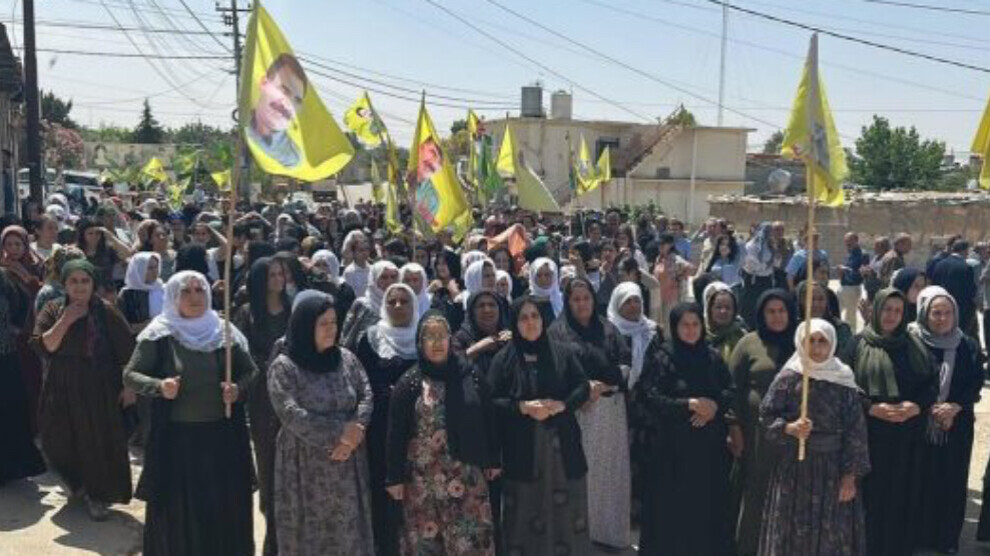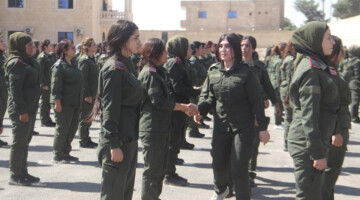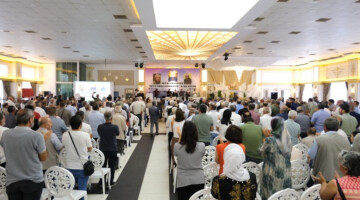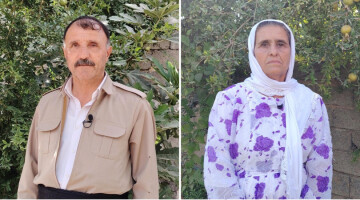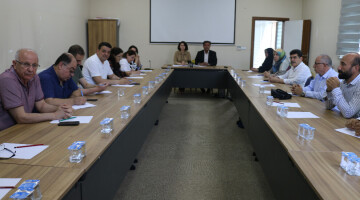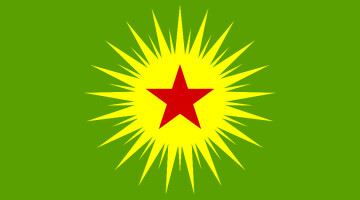A delegation from the Maxmur People's Council traveled to Baghdad on May 14 and met with the Iraqi Ministry of Justice to discuss the situation of camp residents and to call for the lifting of the embargo imposed last month.
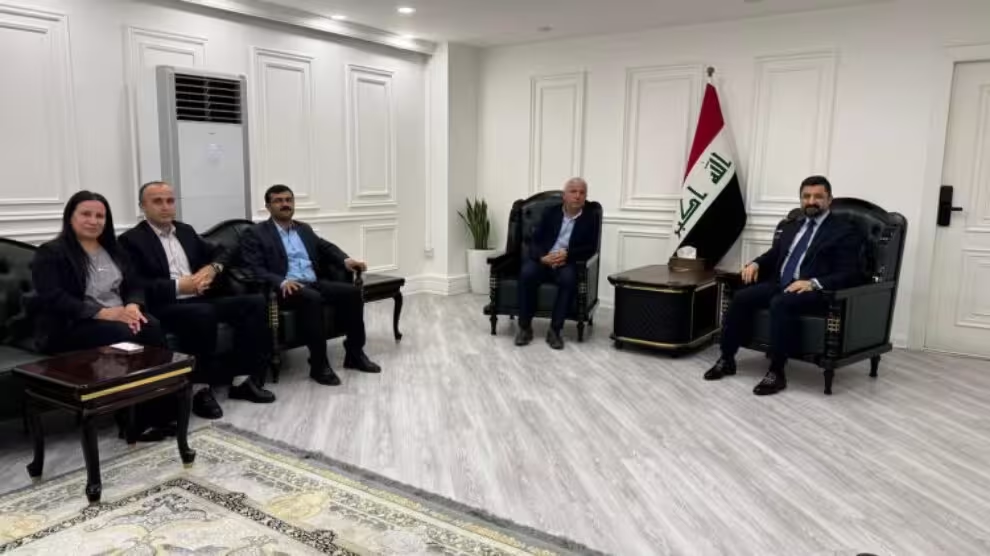
Since April 10, the Iraqi government has been blocking construction materials from entering the camp through a military checkpoint at the entrance. At the same time, camp residents are not allowed to work in other cities. The camp is largely cut off from the outside world, and even the most basic needs cannot be met.
On the other hand, the identity documents of thousands of people living in the Şehit Rustem Cudî Refugee Camp have not been renewed for over two years. This arbitrary practice makes it impossible for camp residents to travel and carry out official procedures, and also prevents them from exercising their basic rights to education, health, and work.
Members of the delegation were detained on their way back from Baghdad on Wednesday.
Speaking to Rojnews, Filiz Budak, co-chair of the Maxmur People's Council, said that the delegation had met with the Ministry of Justice at the latter's request, but that three people had been detained on their way back.
Those detained include Ahmed Şehbaz, co-chair of the Maxmur People's Council, Edban Yılmaz, co-mayor of the camp, and Bewar Emin, co-spokesperson for the Foreign Relations Committee.
Camp residents stated that these arrests are concerning, both legally and politically, and that the timing—at a time when efforts for a solution to the Kurdish question are ongoing in Turkey, Iraq, Syria, and South Kurdistan—is noteworthy.
In the meantime, residents of the camp are staging a protest march, calling for unity and resistance against the Iraqi government's policies of oppression and intimidation. The people of Maxmur demand the immediate release of the detainees and the lifting of the embargo on the camp.
After walking to the checkpoint at the entrance to the camp, the people announced that they would continue their protest until the delegation was released.
The residents of Maxmur set up a resistance tent in front of the checkpoint where Iraqi forces are stationed, expressing their opposition to the oppression and embargo.
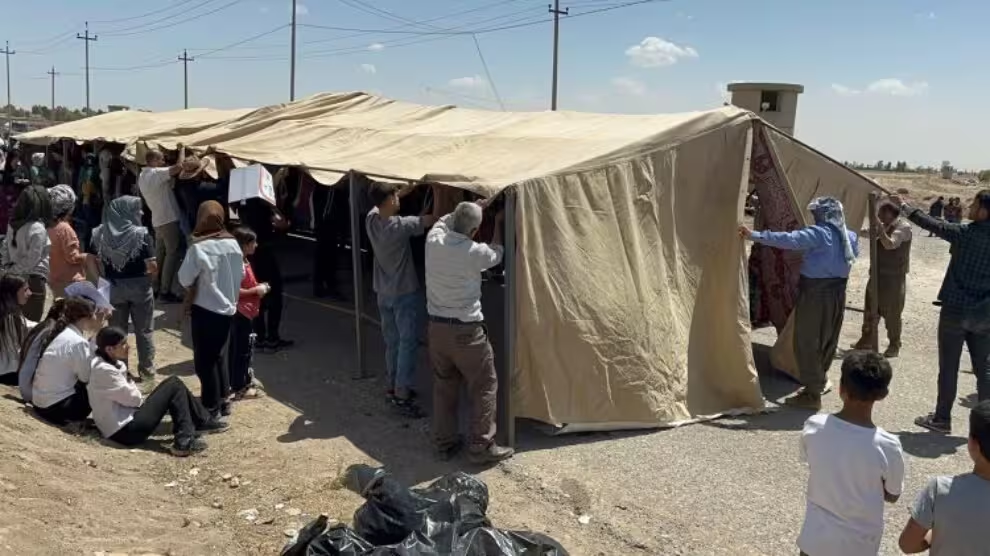
Maxmur Camp
The approximately 12,000 residents of the Şehid Rüstem Cudi (Maxmur) Refugee Camp are mostly Kurds who fled the Botan region in Northern Kurdistan (South-Eastern Turkey) in1994 due to the destruction of their villages by the Turkish military, as well as their descendants.
Maxmur Camp has been subjected to oppression by both Iraq and Turkey for years. The camp has been repeatedly bombed since 2017, and the Erdoğan regime has carried out 13 airstrikes on the residents of the camp in the last five years.
The ruling KDP's embargo, in place since 2019, has prevented passage to Hewlêr (Erbil), and many civilians have lost their lives as a result of bombings by Turkish warplanes.
An attempt by Iraqi forces to encircle the camp with a fence in 2021 was thwarted by the resistance of the camp residents. According to a statement released by the Maxmur People's Assembly Co-Presidency on April 15, a new siege and isolation process has been initiated following the recent Iraqi-Turkish talks.
Thousands of people living in the camp are protesting against the long-standing embargo and restrictions on freedom of movement.
The refugee status of camp residents has not been renewed by the Iraqi government for two years. This situation effectively eliminates citizens' freedom of movement, causing them to be stopped at checkpoints and encounter obstacles in their daily lives.
Meanwhile, since April 10, Iraqi security forces stationed at a checkpoint have been preventing food, medicine, and other basic necessities from entering the camp. This de facto blockade is making living conditions for the camp's residents increasingly difficult with each passing day.
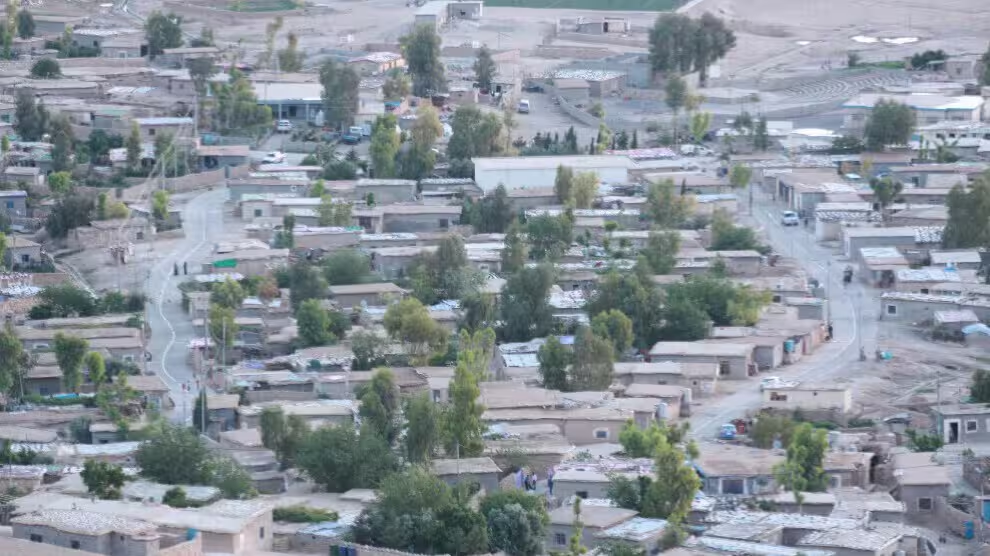
Pressures on Maxmur Camp since 2019
July 17, 2019: The KDP began imposing an embargo on Maxmur Camp at Turkey's request.
July 18, 2019: Turkish warplanes bombed the camp, injuring two people.
January 27, 2021: Iraqi forces attempted to fence off the camp, but were forced to pull back in the face of the resistance by the residents.
May 20, 2023: Iraqi forces resumed construction of trenches, fences, and towers, and were forced to withdraw after 16 days of people’s resistance.
April 10, 2025: The Iraqi government blockaded the camp; the flow of goods, services, and labor was halted, and identity card renewals were suspended.
April 30, 2025: Camp residents organized a march and sit-in, calling for dialogue to come up with a solution.
May 14, 2025: Three members of the Maxmur People's Council delegation who met with the Ministry of Justice in Baghdad were detained on their way back.

